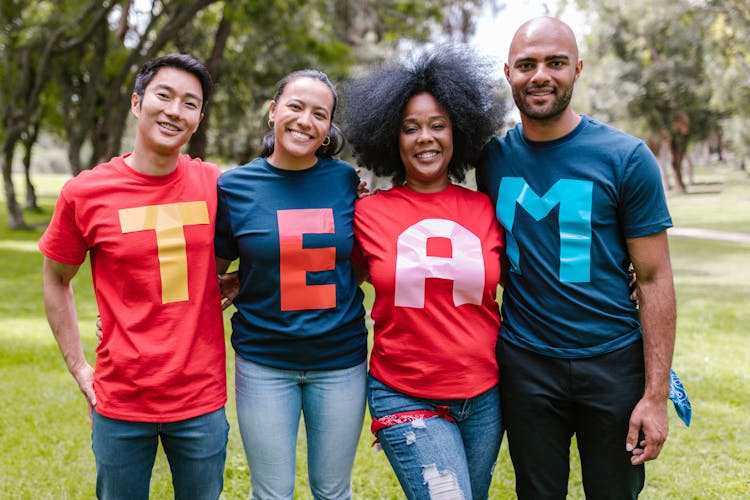It is no secret that soft skills like public speaking and teamwork have become increasingly important considerations for business schools in recent years. If you are applying to an MBA program, there is a good chance you will be asked to tell a story about teamwork in an essay or an interview question. If you apply to multiple MBA programs, the chance is virtually 100%. After reviewing countless essays and evaluating thousands of interview answers, we can safely say that effectively telling teamwork stories is one of the most challenging admissions topics.
First, let’s consider why teamwork is a core value that top business schools look for in candidates. The project-based environment adopted by many programs can explain a lot of it. For instance, schools like Michigan Ross and CMU Tepper tout their strong “action-based” learning and capstone offerings. In these hands-on projects with corporate partners, students work in teams to solve marketing, strategy, or operations challenges faced by managers. Considering the real-world implications and the potential damage to the school’s reputation should student consultants fail to produce strong deliverables, it is no surprise that admissions teams vet applicants for their ability and commitment to collaboration. Another key reason that MBA admissions seek collaborative candidates is culture building. Schools like Duke Fuqua emphasize a strongly bonded community, where students are expected to support one another during their academic journeys, as well as after graduation. In addition to its benefits in cohort building, this approach can carry forward a business school’s reputation for producing team players that companies can count on.
Choose Your Story Wisely
People in individual contributor roles at work sometimes struggle to identify stories that can showcase their teamwork abilities. They often worry that a story will only be effective if it involves some massive impact. Others wrongly assume that the story must feature them as a leader. Avoid this thinking and choose stories where you can most easily articulate the team’s performance and your role within the team, ideally pointing to skills or abilities related to your eventual career goal. For example, someone who wants to be a product manager might showcase mediation and communication skills in a teamwork story as evidence of their ability to handle the challenges of working with diverse stakeholders whose goals may not always align.
Moreover, the story does not have to be professional. Examples gleaned from university clubs, church groups, athletics, or volunteering can turn into great stories. Lastly, the size of the team is not important. A team of two – you and one other person – can turn into a meaningful and effective narrative.
Put the Spotlight on Others
Unfortunately, many people forget the word “team” when telling teamwork stories. In an effort to stress their strengths and contributions, many teamwork examples evolve into leadership or personal accomplishment stories. A good teamwork story should introduce the listener to all the stakeholders involved, describe team dynamics, illustrate challenges faced by team members, and clearly illuminate why this is a great example of effective teamwork.
Demonstrate Active Listening and Conflict Resolution
Countless clients have commented that it is hard to tell a teamwork story without sounding boastful and talking about their own leadership. A best method to avoid this and exhibit a collaborative personality is to show active listening. Perhaps you asked clarifying questions to gain a better understanding of your teammates’ perspective and probing questions to explore the topic more deeply. You may show that this approach led to a breakthrough, and helped a counterpart identify a key point that they had not realized. Other fertile teamwork storytelling ground is conflict resolution. For instance, perhaps your story involves working on a new marketing campaign. Teammate A prefers a highly creative, unconventional approach, while Teammate B leans towards a more data-driven, traditional strategy. Your story may highlight how you leveraged your interpersonal skills to help A and B reach a consensus.
Teamwork as a Strategy
Knowing of business schools’ affinity for teamwork, there is no need to wait for a teamwork essay or interview question to surface to demonstrate your ability. You may tell a teamwork story in other contexts. For example, in an MBA “goal essay” which asks about career goals and why you need an MBA to achieve them, you may insert a short teamwork example as evidence to support your assertion that you can adapt to a future career goal, such as consulting or project management.
Conclusion
In the ultra-competitive MBA application landscape, where business schools ask applicants to sell their accomplishments and explicitly highlight their strengths and potential for future management success, discussions of teamwork may seem less impressive. Contrary to conventional wisdom, highlighting your collaborative victories alongside individual leadership triumphs could prove to be a strategic advantage

